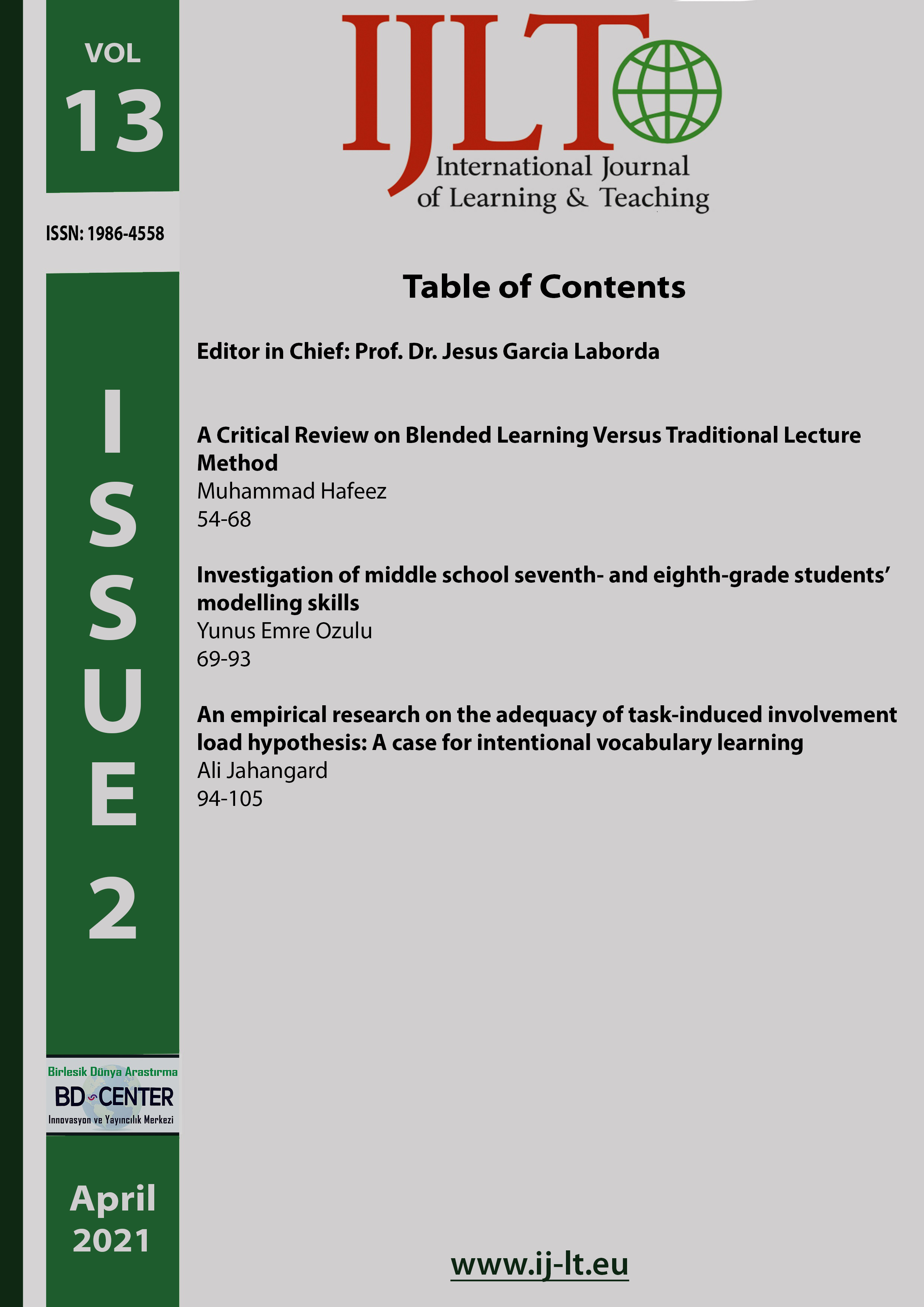An empirical research on the adequacy of task-induced involvement load hypothesis: A case for intentional vocabulary learning
Main Article Content
Abstract
The present study aimed at examining the adequacy of the task-induced involvement load hypothesis in intentional learning. An investigation was carried out to find out whether proficiency level of learners had a role in the effectiveness of the vocabulary tasks with different involvement loads. One hundred and thirty-six university students were randomly assigned into four task groups, each of which included upper and lower intermediate learners. Reading comprehension and discussion, reading comprehension and gap filling, reading comprehension plus sentence-making and reading comprehension plus translation with different involvement loads were compared against each other in terms of the immediate and delayed retention of new words. The study partially supported the involvement load hypothesis in that the task with the highest involvement loads resulted in better immediate and delayed retention of new words. The results of the experiment also showed that tasks with similar involvement loads might not result in similar amounts of vocabulary learning.
Keywords: Task-induced involvement, load hypothesis, vocabulary learning, word retention, task.
Downloads
Article Details

This work is licensed under a Creative Commons Attribution 4.0 International License.
Authors who publish with this journal agree to the following terms:
- Authors retain copyright and grant the journal right of first publication with the work simultaneously licensed under a Creative Commons Attribution License that allows others to share the work with an acknowledgement of the work's authorship and initial publication in this journal.
- Authors are able to enter into separate, additional contractual arrangements for the non-exclusive distribution of the journal's published version of the work (e.g., post it to an institutional repository or publish it in a book), with an acknowledgement of its initial publication in this journal.
- Authors are permitted and encouraged to post their work online (e.g., in institutional repositories or on their website) prior to and during the submission process, as it can lead to productive exchanges, as well as earlier and greater citation of published work (SeeThe Effect of Open Access).
